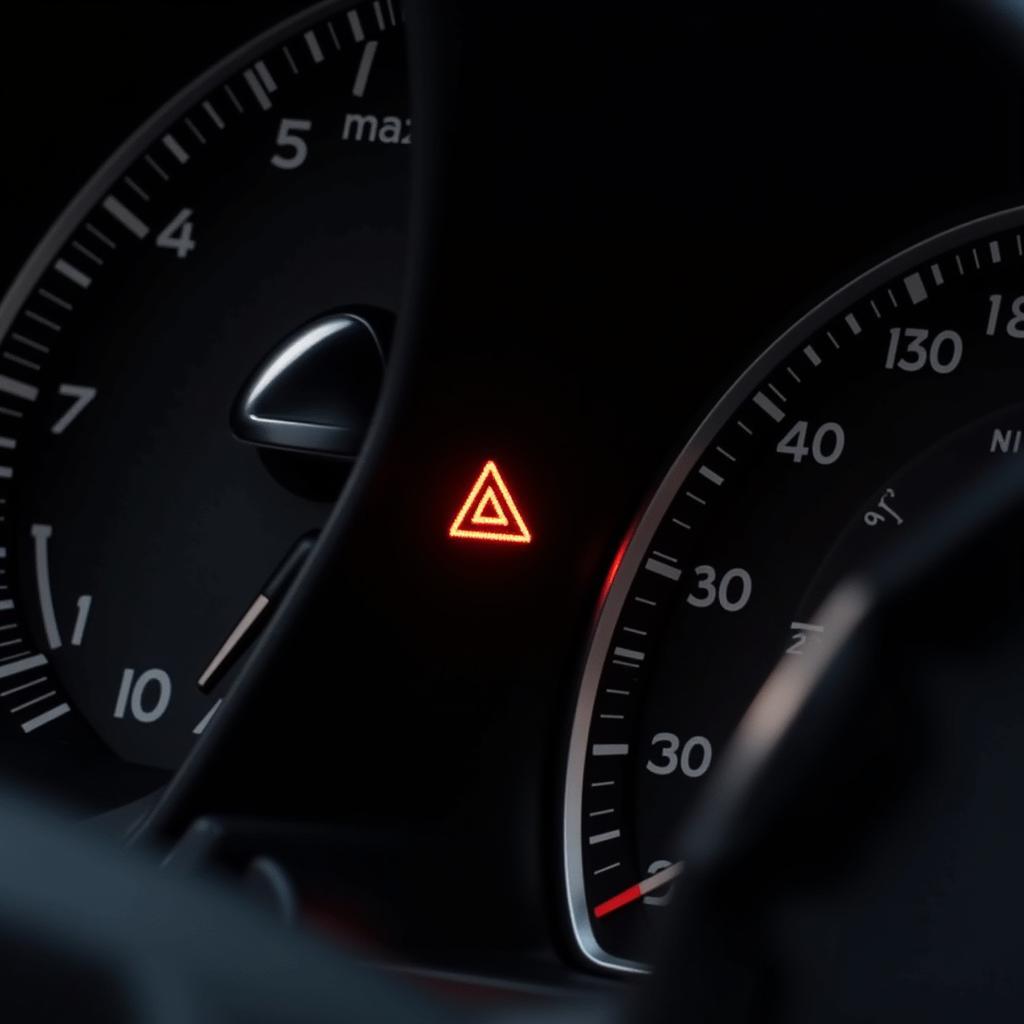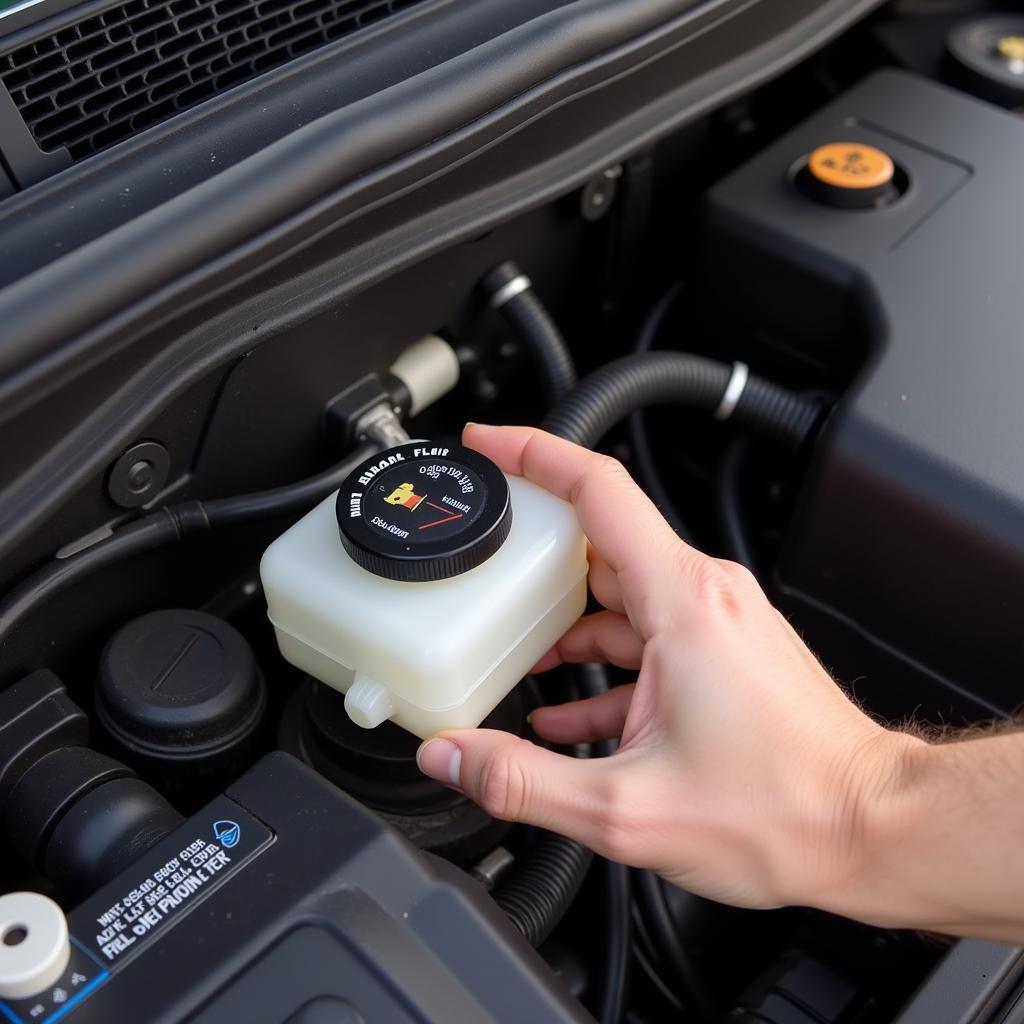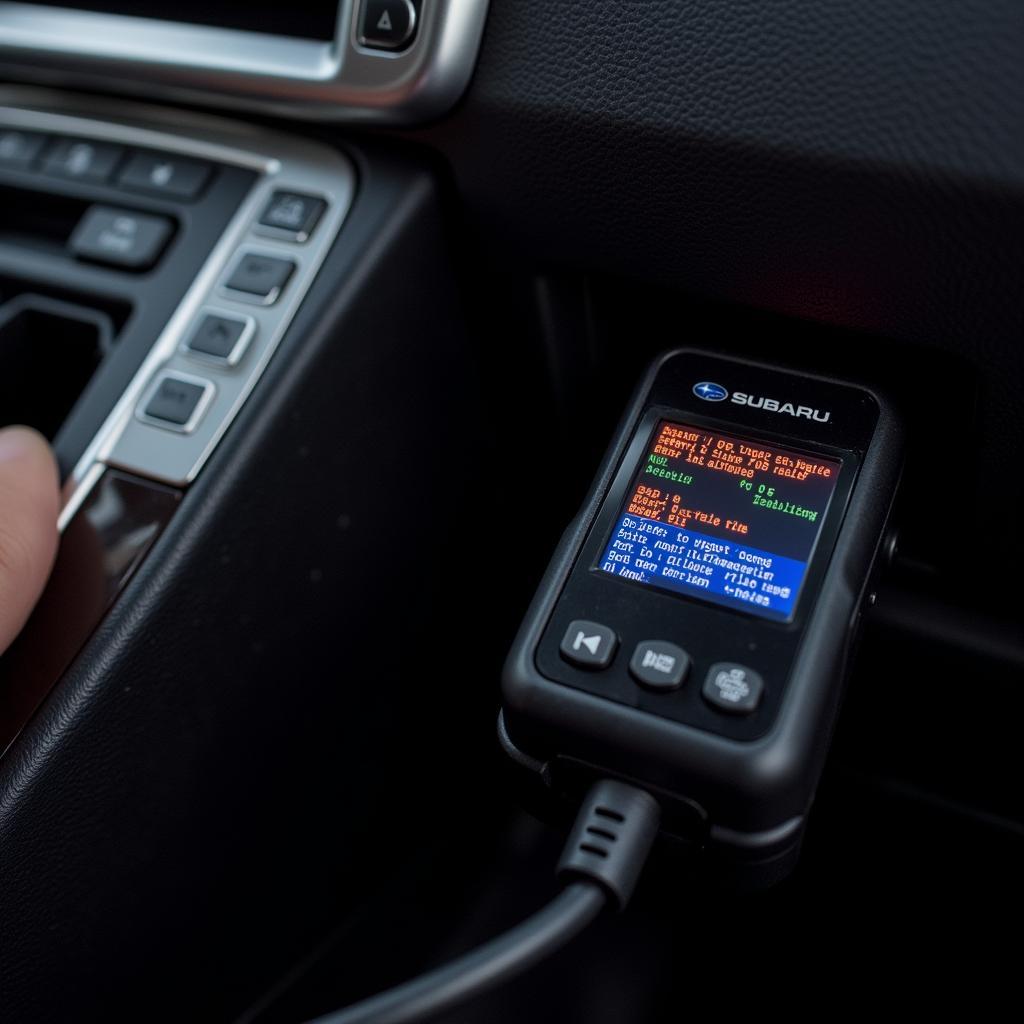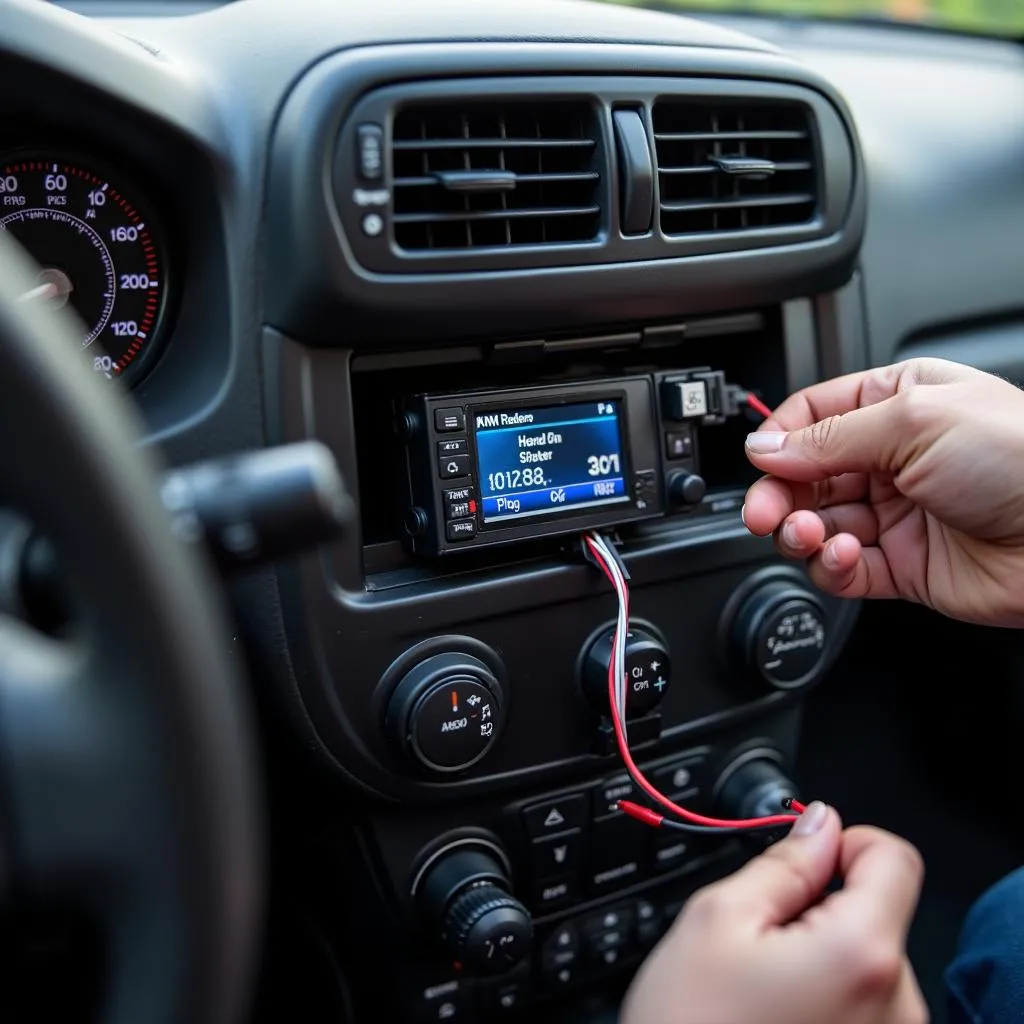A blinking brake warning light on your Subaru dashboard is a clear sign that your vehicle needs immediate attention. This signal indicates a potential problem with your braking system, and ignoring it could lead to dangerous driving conditions. While the exact cause can vary, understanding common reasons for a Subaru blinking brake warning light can help you address the issue promptly and safely.
 Subaru Dashboard with Blinking Brake Light
Subaru Dashboard with Blinking Brake Light
Common Causes of a Subaru Blinking Brake Warning Light
Several factors can trigger your Subaru’s brake warning light to blink. Here are some of the most prevalent causes:
-
Low Brake Fluid Level: This is the most frequent culprit behind a blinking brake light. Brake fluid is essential for transferring force from your foot on the brake pedal to the brake calipers, effectively stopping your Subaru. If the fluid level drops too low, often due to a leak or worn brake pads, the warning light will blink.
-
Faulty Brake Light Switch: The brake light switch is responsible for activating your brake lights when you press the pedal. A malfunctioning switch can disrupt this signal and cause the warning light to blink.
-
ABS Issue: Your Subaru is equipped with an Anti-lock Braking System (ABS). If the ABS control module detects a problem, it can trigger the blinking brake light. This could be due to a faulty sensor, a wiring issue, or a problem with the ABS module itself.
 Checking Subaru Brake Fluid Level
Checking Subaru Brake Fluid Level
-
Worn Brake Pads: Subaru vehicles are designed to alert you when the brake pads wear thin. A sensor within the brake pad system will trigger the blinking light, indicating it’s time for a replacement.
-
Parking Brake Engaged: While seemingly obvious, sometimes the parking brake may not be fully released. Even a slight engagement can activate the warning light.
Diagnosing the Problem
Identifying the specific reason behind the blinking brake warning light requires a systematic approach:
-
Check the Parking Brake: Ensure your parking brake is fully disengaged.
-
Inspect Brake Fluid: Open the hood and locate the brake fluid reservoir. Check the fluid level, ensuring it falls within the minimum and maximum lines. If the level is low, there might be a leak within the system.
-
Consult Your Subaru Owner’s Manual: Refer to your owner’s manual for specific information about the warning lights and their meanings for your Subaru model.
-
Use an OBD-II Scanner: For a more accurate diagnosis, connect an OBD-II scanner to your vehicle’s diagnostic port. This device can read the trouble codes stored in your Subaru’s computer, providing insight into the root cause of the warning light.
 Using an OBD-II Scanner on Subaru
Using an OBD-II Scanner on Subaru
What to Do When Your Subaru Brake Warning Light is Blinking
A blinking brake light demands immediate attention. It’s crucial not to continue driving if:
- The brake pedal feels soft or spongy
- You hear unusual grinding or scraping sounds when braking
- Your car pulls to one side when braking
If you experience any of these symptoms, stop driving immediately and contact a tow truck to transport your Subaru to a trusted mechanic or dealership.
Expert Insight
“Many drivers underestimate the importance of regular brake system checks,” says John Miller, a senior mechanic with over 20 years of experience working on Subaru vehicles. “Don’t wait for the warning light to start blinking. Routine inspections, including brake fluid flushes and pad replacements, are crucial for preventing serious brake problems down the road.”
Preventing Future Issues
Taking proactive measures can help you avoid encountering a blinking brake warning light in the future:
- Regular Maintenance: Adhere to the recommended maintenance schedule outlined in your Subaru owner’s manual.
- Timely Brake Pad Replacement: Don’t delay replacing your brake pads when they begin to wear thin.
- Inspect Brake Lines: Regularly check for leaks or damage to your brake lines.
- Address Warning Lights Promptly: Never ignore any warning lights on your dashboard, especially those related to your brakes.
Conclusion
A blinking brake warning light on your Subaru is a serious issue that should never be ignored. Understanding the potential causes, taking immediate action, and prioritizing preventative maintenance are key to ensuring your safety and the optimal performance of your Subaru. If you are unsure about diagnosing or addressing the issue yourself, always consult a qualified mechanic.
FAQs
1. Can I drive my Subaru with the brake warning light blinking?
While you might be able to drive a short distance, it’s highly discouraged. Continuing to drive with a compromised brake system puts you and others at risk.
2. How much does it cost to fix a blinking brake warning light on a Subaru?
The cost of repair depends on the underlying cause. A simple brake fluid top-up is inexpensive, while fixing a brake line leak or replacing the ABS module can be more costly.
3. How often should I check my Subaru’s brake fluid?
It’s advisable to inspect your brake fluid level at least once a month and more frequently if you notice any changes in your brake pedal feel.
4. Can I add any brake fluid to my Subaru?
No. It’s crucial to use the brake fluid type specified in your Subaru owner’s manual to avoid damaging your braking system.
5. Can a blinking brake warning light be related to electrical issues?
Yes, a faulty brake light switch or a problem with the vehicle’s electrical system can sometimes trigger the brake warning light.
6. Is it safe to drive my Subaru if the brake warning light is on but not blinking?
It’s generally safer than driving with a blinking light, but it still indicates an issue that needs addressing.
7. Where can I find a qualified mechanic to diagnose and repair my Subaru’s brake system?
You can consult your Subaru dealership or search for reputable mechanics specializing in Subaru vehicles in your area.

